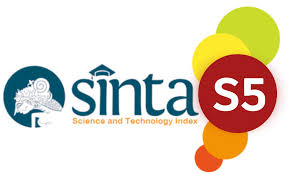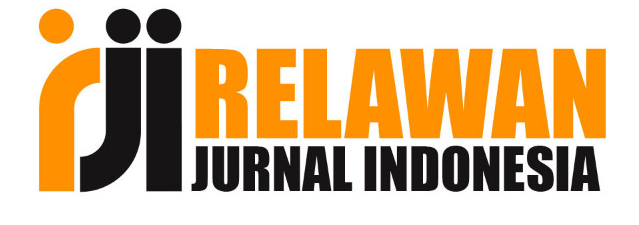USING DICTOGLOSS TECHNIQUE FOR IMPROVING LISTENING COMPREHENSION OF EIGHTH GRADERS IN SMP TRI DHARMA PALEMBANG
DOI:
https://doi.org/10.36982/jge.v10i2.2498Keywords:
distogloss technique, teaching, listeningAbstract
Listening is one of the skills that needed to be integrated in an effective way for the teaching and learning of English to be successful. A technique called Dictogloss was used in this research to find out the significant improvement on listening comprehension and perception of students’ toward dictogloss technique in SMP Tri Dharma Palembang of eighth graders in academic year 2021/2022. Quantitative method was used by the researcher namely pre-experimental design which only used one class. As data source, test and questionnaire were used in this research. The pre-test and post-test was taken from experimental group to find out whether Dictogloss Technique effective to improve the eighth grade student’s at SMP Tri Dharma Palembang. And questionnaire to determine the students’ perceptions on Dictogloss technique in teaching listening. The results showed the experimental class students’ listening improved as indicated by the pre-test and post-test scores. It means t-obtain is bigger than t-table (25.789 > 2.024) and the value of Sig.(2-tailed) was 0.000 < 0.05, means that null hypothesis (Ho) was rejected and alternative hypothesis (Ha) was accepted so there was any significant improvement of students’ listening who taught by Dictogloss. Meanwhile the mean score of questionnaire is 73,44 which showed a positive perception because the result showed the mean score is higher than 60. In short, the use of Dictogloss as the technique to improve students’ listening skill is suggested for teachers in teaching listening.
References
Abdin, A., & Kanzharova, A. (2021). Teaching Listening. Global Science and Innovations: Central Asia (См. в Книгах), 4(9), 83–87.
Azmi, V. C. (2017). Using the dictogloss technique to enhance listening ability. English Education Journal (EEJ), 8(1), 55-66.
Creswell, J. W. (2012). Educational Research Planning, Conducting, and Evaluating Quantitative and Qualitative Research (4th ed.). MA Pearson.
Gibran, A. (2021). The Students’ Perception On The Use of Dictogloss technique In Teaching Listening (A Descriptive Quantitative Research at The Grade Twelve of SMA Muhammadiyah Sungguminasa). University of Muhammadiyah Makassar.
Gilakjani, A. P., & Sabouri, N. B. (2016). Learners’ Listening Comprehension Difficulties in English Language Learning: A Literature Review. English Language Teaching, 9(6), 123–133. https://doi.org/10.5539/elt.v9n6p123
Goh, C. (2012). A Cognitive Perspective On Language Learners’ Listening Comprehension Problems. System, 28(1), 55–75. https://doi.org/10.1016/S0346-251X(99)00060-3
Hamouda, A. (2013). An Investigation of Listening Comprehension Problems Encountered by Saudi Students in the EL Listening Classroom. International Journal of Academic Research in Progressive Education and Development, 2(2), 113–155.
Jacobs, G., & Small, J. (2003). Combining Dictogloss and Cooperative Learning To Promote Language Learning. Reading Matrix, 3(1), 185–194.
Jibir-Daura, R. (2013). Using Dictogloss as an Interactive Method of Teaching Listening Comprehension. Advances in Language and Literary Studies, 4(2), 112–116. https://doi.org/10.7575/aiac.alls.v.4n.2p.112
Lee, L. W., & Jacobs, G. M. (2001). An Analysis of Students’ Dyadic Interaction on a Dictogloss Task. In Educational Resources Information Center (ERIC) No. ED 456 649.
Sari, D. R. (2013). Digital Story: An Effective Media to Teach Listening from the Perspective of Students’ Schemata. A Journal of English Literature, Languange and Education, 1(2), 1–11. https://doi.org/10.25273/etj.v1i2.731
Sugiyono. (2015). Metode Penelitian Kombinasi (Mix Methods). Alfabeta.
Vasiljevic, Z. (2010). Dictogloss As An Interactive Method of Teaching Listening Comprehension To L2 Learners. English Language Teaching, 3(1), 41–52.
Widhiasih, L. K. S. (2019). Dictogloss in Improving Listening Comprehension.
Downloads
Published
How to Cite
Issue
Section
License
Global Expert: Jurnal Bahasa dan Sastra is published by Universitas Indo Global Mandiri and licensed under a Creative Commons Attribution-ShareAlike 4.0 International License.











